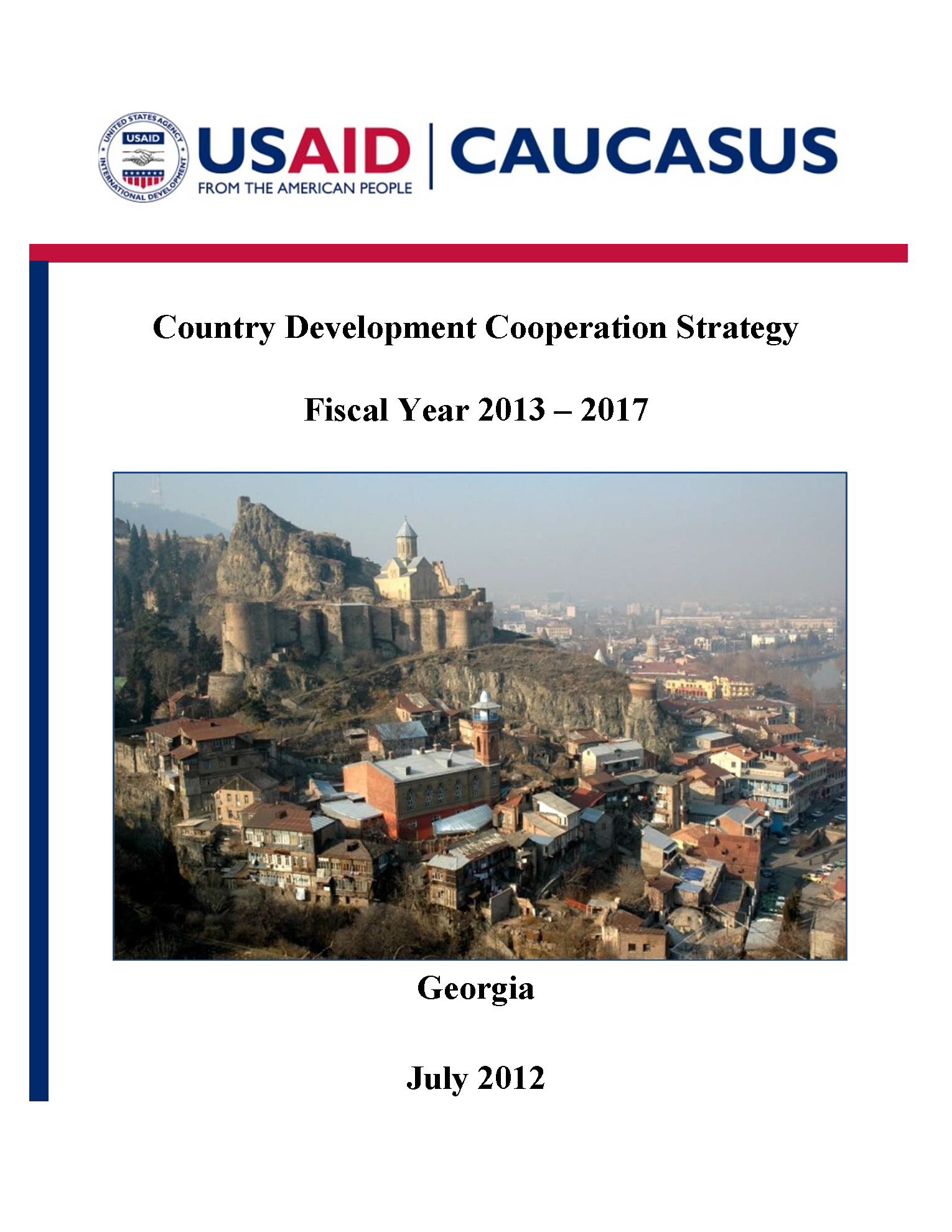United States (U.S.) policy in Georgia exemplifies how our approach to former communist states can succeed. Thanks in large part to U.S. political support and assistance, a country close to being a failed state eight years ago now is a strong partner in combating terrorism and nuclear proliferation, contributes substantially to North Atlantic Treaty Organization (NATO) missions, has constructive relations with most of its neighbors, and is one of the most democratic countries in the former Soviet Union. At the same time, Georgia presents challenges to which the U.S. is committed to respond. Georgia requires further democratic development, reforms in other areas need to be sustained, and the Russian occupation of the separatist regions of both Abkhazia and South Ossetia undermines their reintegration into Georgia and puts a brake on the overall reform process, a U.S. priority.
Building on 20 years of partnership, the U.S. Government (USG) proposes to allocate new USAID development resources over the next five years to achieve the goal, Georgia’s democratic, free-market, Western-oriented transformation strengthened and sustained. To attain this goal, we will concentrate effort on the following three development objectives (DOs): (1) democratic checks and balances and accountable governance enhanced, (2) inclusive and sustainable economic growth, and (3) an increasingly stable, integrated and healthy society. Through smart investments, the USG will partner with the Government of Georgia and other host country entities to promote democratic checks and balances and more accountable governance that will contribute to more competitive and enduring democratic institutions.
Through the application of a political economy lens to our economic growth efforts, we will advance inclusive and more sustainable growth. Through dedicated efforts to improve stability and integration, the USG will help to increase the security of the Georgian people. Programming under this strategy will develop and employ host country systems and champion USAID Forward reform goals. CDCS cross-cutting themes include gender equality, youth, human and institutional capacity development, and transparency and evidence-based decision-making.
This strategy represents a transition away from robust post-conflict programming funded by the USG’s 2008 pledge of $1 billion to a more normalized assistance package. A core principle for the USG will be the sustainability of post-conflict investments which will be fully implemented by the mid-term of this CDCS. As the Mission has focused from five objectives in the current post-conflict strategy to three objectives under this CDCS, assistance in key areas will graduate, including in large-scale infrastructure, basic education, and health. The strategy is aligned with host country priorities, U.S. foreign policy, and USG administration initiatives, including Feed the Future and Global Climate Change. USAID is prepared to be held accountable for the achievement of the development objectives outlined in this CDCS, though the effort will be reinforced by other USG actors and donors. Achievement of the CDCS goal will require both diplomatic and assistance effort on the part of the USG and broader donor community, and is subject to a number of host country-setting risks and assumptions.
By the end of this strategy period, we expect to see a Georgia that practices more accountable governance; achieves more broad-based and sustainable economic development; and has made tangible progress reaching out to people in the separatist regions, and in regions with significant minority populations.









Comment
Make a general inquiry or suggest an improvement.